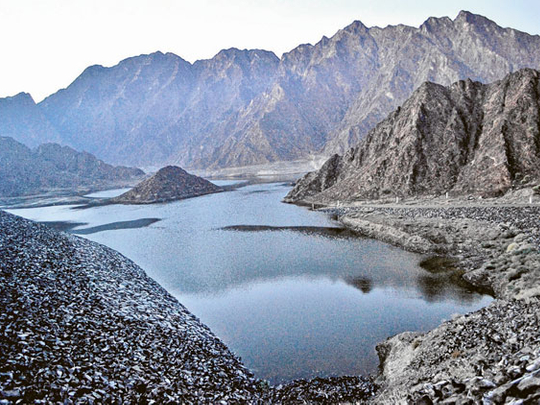
Dubai: Six new natural reserves will be set up in Dubai following a decree issued by His Highness Shaikh Mohammad Bin Rashid Al Maktoum, Vice-President and Prime Minister of the UAE, in his capacity as Ruler of Dubai.
The reserves will be set up in six areas in the emirate: Hatta mountains reserve, Al Wuhoosh desert reserve, Al Marmoom desert reserve, Dubai natural reserve (Al Maha), Jebel Nazwa reserve, and Al Ghaf reserve in Nazwa.
The decree aims to protect the environment, preserve natural resources and contribute to the development of ecotourism. The decree also activates the role of the Dubai Municipality in managing natural reserves and giving it the capabilities to achieve these objectives.
Hussain Nasser Lootah, Director-General of Dubai Municipality, said that the UAE has been making progress in its environmental performance, rising from 152nd in 2010 to 77th in 2012 on the global level. The UAE placed first in three out of 10 environmental policies sub-indexes: The preservation of forests, internal air quality and access to water. Lootah predicted even more progress in the UAE’s environmental performance in 2014, ranking at least among the top 30 countries.
He pointed out that such efforts are in line with the directives of Shaikh Mohammad to continuously exert more efforts to increase the UAE’s competitiveness in all fields, including environment.
The decree stipulates that the areas will be managed by Dubai Municipality’s Department of Natural Reserves.
He clarified that the setting up of the reserves is also in line with protecting and increasing the area of greenery in the UAE, particularly preserving trees like Al Sidr, Al Ghaf and Al Samr.
The setting up of natural reserves is an effective method to curb hunting, chopping of trees, fire hazards, and protecting endangered species of plants and animals. Natural reserves also contribute to reintroducing the missing ecological balance in these areas, and protecting plants and animal species, and increasing their number to allow hunters to practice their hobby in moderation, without fearing the fact that a rare animal species might become endangered due to overhunting.
The reserves also provides scientists and researchers the opportunity to carry out field studies on endangered species, and activating and boosting the ecotourism movement, which is considered a key source for national income in many countries around the world.












